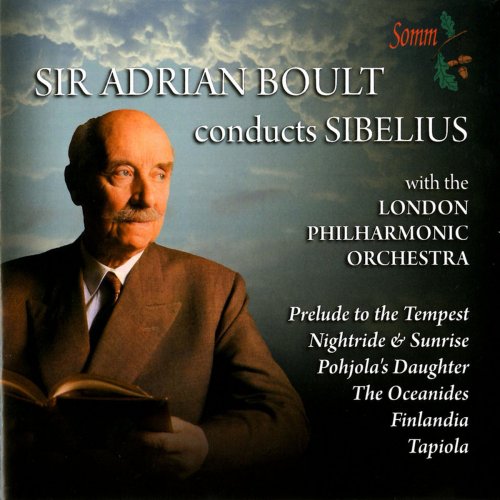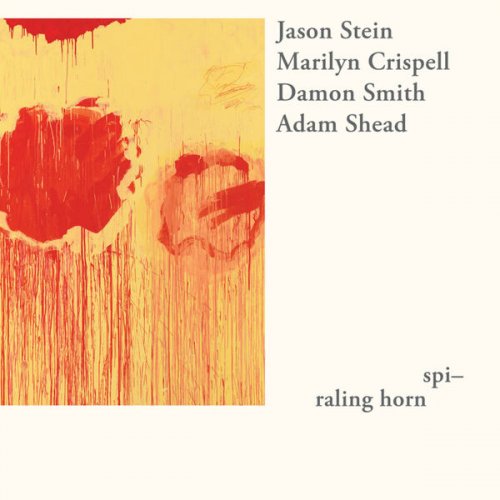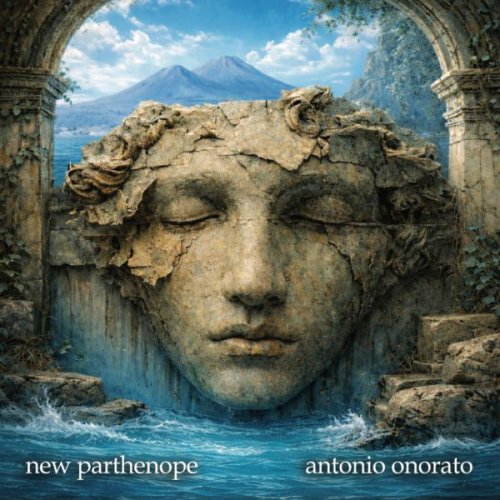London Philharmonic Orchestra - Sir Adrian Boult Conducts Sibelius 1956 (2014)

Artist: Adrian Boult, London Philharmonic Orchestra
Title: Sir Adrian Boult Conducts Sibelius
Year Of Release: 2014
Label: SOMM Recordings
Genre: Classical
Quality: FLAC (tracks+booklet)
Total Time: 69:03 min
Total Size: 281 MB
WebSite: Album Preview
Tracklist:Title: Sir Adrian Boult Conducts Sibelius
Year Of Release: 2014
Label: SOMM Recordings
Genre: Classical
Quality: FLAC (tracks+booklet)
Total Time: 69:03 min
Total Size: 281 MB
WebSite: Album Preview
01. Finlandia, Op. 26
02. Tapiola, Op. 112
03. The Oceanides, Op. 73
04. Night Ride and Sunrise, Op. 55
05. Pohjola's Daughter, Op. 49
06. The Tempest Suite No. 1, Op. 109, No. 2: Prelude
He recorded these in 1956 for Pye (Nixa Recording Company Ltd as it was then known) and these now appear on CD in the SOMM Céleste catalogue. These symphonic poems are all superbly realized by Boult and the London Philharmonic in performances that were universally admired.
The Nixa discs of the orchestral poems constituted the first integral recording of these works, and it is from those performances that the music on this CD has been chosen. What has to be noted is the excellence of the London Philharmonic (at that time, Boult was the Orchestra’s principal conductor) and the clarity of the recorded sound, but over and above these qualities is the nature of Boult’s ‘finely conceived’ interpretations – as the Sibelius authority, composer Robert Simpson, wrote of them. ‘What a wealth of poetry and power is in the music! It is really exciting to hear all these pieces and to realize the scope and variety that is encompassed by their superficial similarities of style and texture.’
The Nixa discs of the orchestral poems constituted the first integral recording of these works, and it is from those performances that the music on this CD has been chosen. What has to be noted is the excellence of the London Philharmonic (at that time, Boult was the Orchestra’s principal conductor) and the clarity of the recorded sound, but over and above these qualities is the nature of Boult’s ‘finely conceived’ interpretations – as the Sibelius authority, composer Robert Simpson, wrote of them. ‘What a wealth of poetry and power is in the music! It is really exciting to hear all these pieces and to realize the scope and variety that is encompassed by their superficial similarities of style and texture.’




![Batsumi - Batsumi (2021) [Hi-Res] Batsumi - Batsumi (2021) [Hi-Res]](https://www.dibpic.com/uploads/posts/2021-06/1623332057_1280x1280.jpg)


![The Mood Mosaic - Erotheque (Unleashing Groovy Musical Lust) (2026) [Hi-Res] The Mood Mosaic - Erotheque (Unleashing Groovy Musical Lust) (2026) [Hi-Res]](https://www.dibpic.com/uploads/posts/2026-02/1770314023_cover.jpg)
![Victoria Alexanyan - VISHAP (2026) [Hi-Res] Victoria Alexanyan - VISHAP (2026) [Hi-Res]](https://img.israbox.com/img/2026-02/06/fp18m8tfhi28on3z9gks3ab7v.jpg)